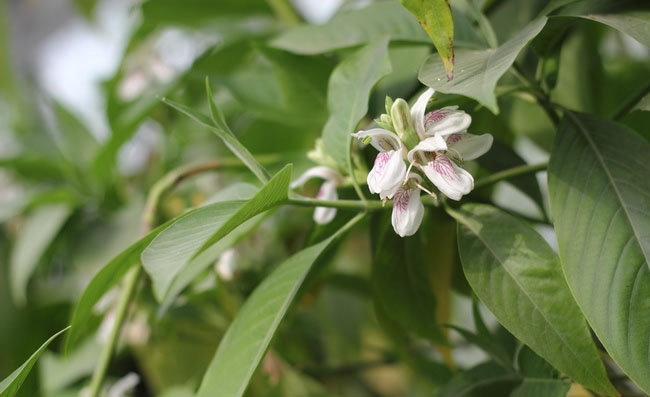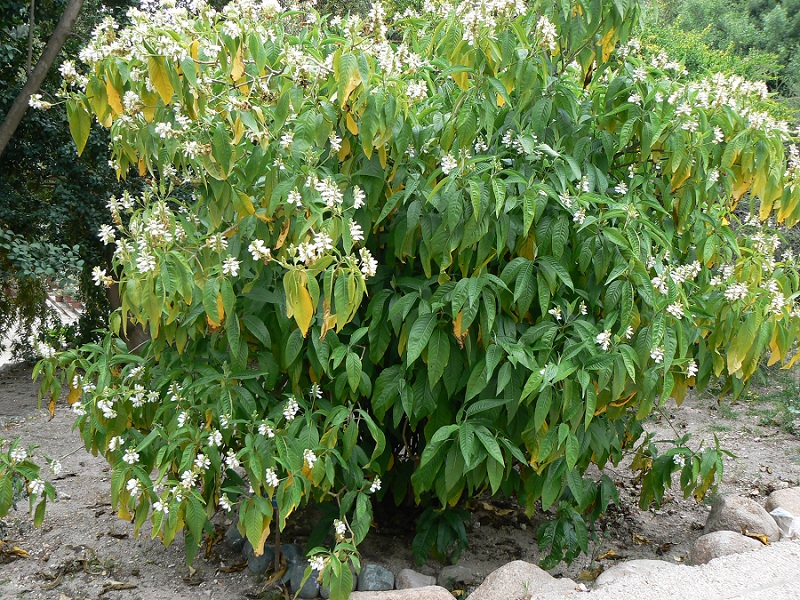Malabar Nut (Adalodakam) – Essential Ingredient of Traditional Ayurvedic Medicines
Malabar Nut is an evergreen shrub, commonly seen in Indian subcontinent and Sri Lanka. In Kerala it called by the name ‘Adalodakam’.
Scientific name of the plant is ‘Justicia adhatoda’. Its also called as Adosa in Hindi and Vasaka in Sanskrit. Malabar nut is used as an essential ingredient in traditional Ayurvedic medicines. All parts of this medicinal shrub is used for treating various ailments. This medicinal plant is associated with general healing and strengthening qualities in Ayurveda.
Malabar nut is a large shrub or a small tree reaching a height of 3-4 meters. This evergreen shrub has leathery leaves. The leaves are lance-shaped with 10 to 15 cm in length.
The oppositely arranged leaves are smooth edged and dried ones has a dull brownish-green colour. They have a bitter taste. Malabar Nut have white flowers and the fruits are with club-shaped capsules.
Useful for the treatment of respiratory disorders
Malabar nut is highly useful for respiratory diseases like asthma and congestion. The alkaloid vasicine presence in its leaves can reduce the risk of respiratory discomforts. The essential oil from these healthy leaves can act as a natural expectorant. Malabar nut was in use since 2000 years for treating bronchitis, tuberculosis and other lung and bronchiole disorders. Mixed juice of malabar nut leaves with ginger extract and honey can be useful against asthma. One teaspoon of its extracted juice from leaves is good for various respiratory diseases like bronchitis, breathlessness etc.
Aids in the treatment for cough
A herbal decoction prepared from the leaves of this herb can have a positive effect against the treatment for cough and other symptoms of cold. The soothing action from the essential ingredients of Malabar nut helps with the irritation of the throat. Expectorant property helps in loosening the phlegm deposits in the airway. These medicinal qualities shows us that this plant is a good remedy for sore throat.
Exhibits anti-bacterial properties
Malabar nut leaves extracts has a strong activity of alkaloid against certain bacteria. These extracts can be used to improve the quality of drinking water, as it can inhibit bacterial population in untreated water. Poultice of leaves can be applied to wounds as it has antibacterial and anti-inflammatory properties.
Effective against ulcers
According to scientific studies Adhatoda Vasica possess anti-ulcer properties. Ancient ayurvedic books like Charaka Samhita portraits the essential health qualities of these plants. Leaves extracts from these plants can used to reduce the ulceration caused due to other drugs like NSAIDs including aspirin. It can have a positive effect on bleeding disorders.





















